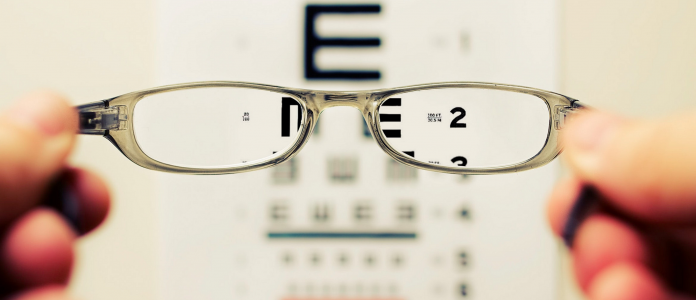We all try to ignore it and tell ourselves it’s not happening – ageing. That dreaded thing that suddenly develops in the form of a wrinkle, a grey hair, or finding yourself having to hold the menu at arm’s length to read it.
In the case of reading like your gran did, you’ve got presbyopia to blame for that one – the far-sightedness caused by ageing. In fact, the term “presbyopia” comes from a Greek word which means “old eye.”
The reason we often start suffering from “old eyes” is because the crystalline lens in the eye loses elasticity, which prevents your eyes from focusing as well as they used to. Usually, you will start to notice changes to their close vision from around the age of 40 and symptoms, which develop gradually, include:
- Having difficulty reading small print
- Needing to hold reading material at arm’s length to focus on it
- Blurred vision at normal reading distance (about 35cm)
- Eye fatigue and headaches when doing close work
Help! My arms aren’t long enough!
When we start to experience these symptoms, most people head off to the pharmacy to buy over-the-counter readers, which basically magnify whatever you’re trying to read and make it easier to view. So, are these any good?
We asked Spec-Savers for the low down on reading glasses, and they gave the following advice:
- In over-the-counter readers, the lens ‘power’ is the same for each eye, whereas the majority of the population’s eyes are not uniformly strong or weak. It can cause eye strain if you read through lenses of the wrong prescription for an extended period.
- Over-the-counter readers are ‘one size fits all’ in that they are made to a standard pupillary distance, which is the distance between the centres of the pupils of the eyes and the lenses. If the lens centre is not in line with your pupil centre, you might not be able to see clearly or may end up with eye strain – as if you were wearing someone else’s glasses.
- Over-the-counter readers do not correct astigmatism, which affects eight out of nine people to some degree. Astigmatism can cause headaches, tired eyes, and blurry vision and require professional intervention to correct.
- Over-the-counter readers cannot correct distance vision, so if you also need glasses for distance vision, you should consider bifocals or multifocals/progressive lenses. Bifocals help you see both close-up and far away, while multifocals/progressive lenses adjust for close, intermediate and distance viewing. Progressive lenses are beneficial for people with presbyopia because they provide clear distance and near vision, as well as clear intermediate (computer) vision.






